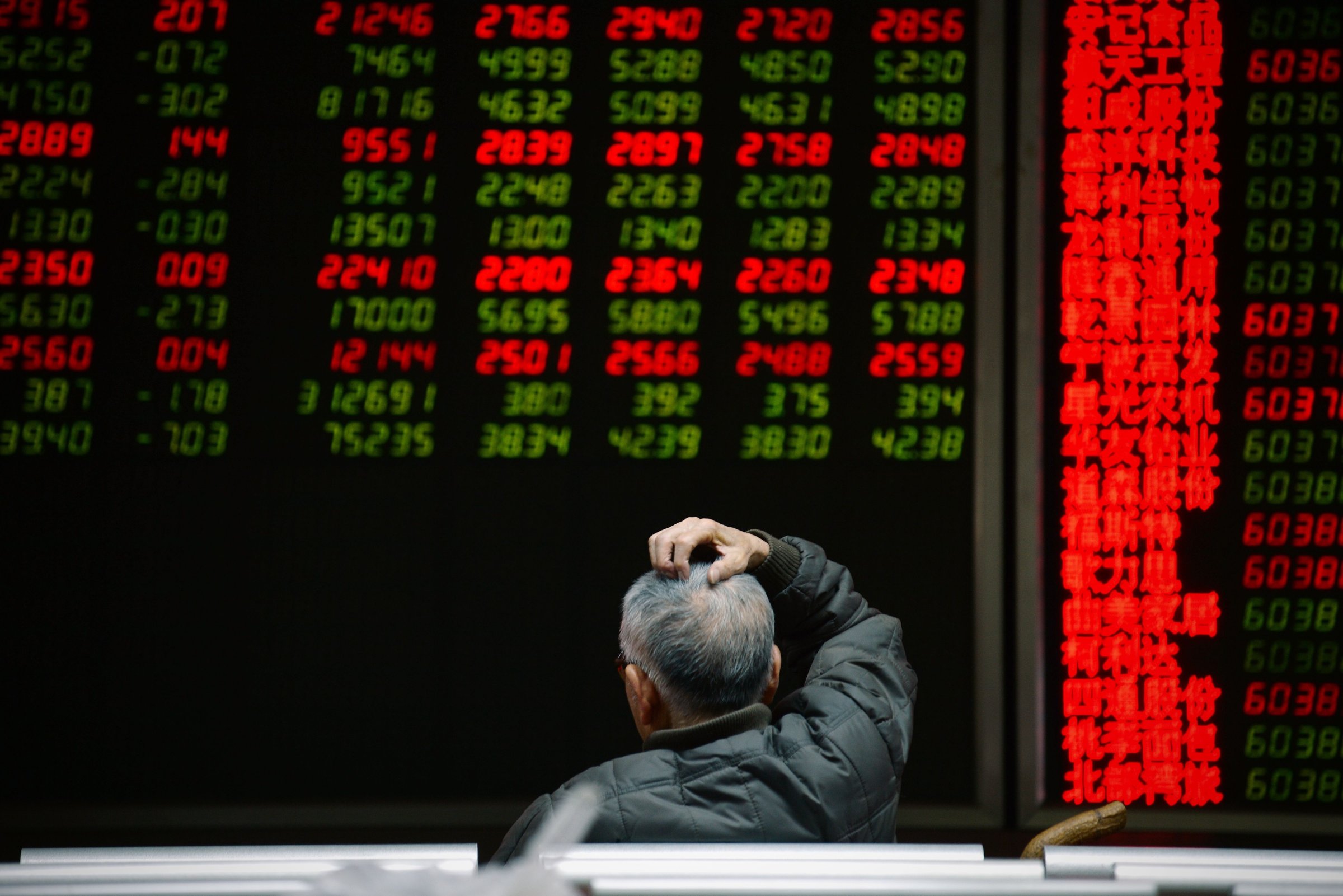
With this year’s early market gyrations, it’s natural to wonder how China moved from inspiring confidence to exporting dread. But never before have international investors depended so heavily on a force they know they don’t understand.
In 1977, China accounted for about one-half of 1% of world trade. Thirty-five years later, it had surpassed the U.S. to become the world’s largest trading nation. Countries in every corner of the world now count on Beijing and its economic engine for their expansion plans, while the U.S. has become China’s No. 1 trading partner. China has accounted for about one-third of global growth over the past seven years, and one day soon it will have the world’s largest economy.
Yet China’s growth has begun to slow as reform shifts the maturing economy from its dependence on exports to a more sustainable reliance on domestic consumption. Wages have been rising in China, which has helped produce a massive middle class even as it has made it tougher for the country’s manufacturers to dominate trade as they have. Outsiders know this, but they don’t know how quickly growth will decline–nor do they have real confidence in government statistics. Given the size of China’s global footprint, that’s a source of considerable anxiety.
That doesn’t mean it’s easy to understand why a sharp drop in China’s benchmark stock index to open the year has spooked international markets so badly. After all, the Shanghai Composite, China’s benchmark index, has little connection to China’s real economy. It’s hardly a secret that China’s government periodically boosts the market with large infusions of cash or with little warning sets new rules that limit the ability of investors to sell when things go south. Last summer, the index fell 32% in less than four weeks, but only after a climb of more than 150% over several months. Nor is the Shanghai index well connected with international markets. Foreigners own just 1.5% of shares in it.
But behind the stock-market roller coaster are real concerns. A surprise currency devaluation and continued downward drift in the value of the yuan against the dollar have investors concerned that some of China’s trade partners will have to devalue their own currencies to avoid losing a competitive commercial advantage. That could trigger a currency war that would ravage global trade.
These fears are overblown. China will continue to devalue its currency, but not enough to trigger a currency war. More important, China’s slowdown remains manageable. Local governments and state-owned enterprises are loaded with debt, but the central government has more than enough cash on hand to stimulate the economy as needed to avoid a hard landing. The leadership has the means and the will to implement emergency measures–even if it means setting the economic-reform process aside temporarily.
The state will continue to play a heavy role in China’s investment environment. Its financial system is only partly open, its currency is not moved by market forces, and its political decisionmaking takes place behind closed doors. China remains a crucial player in global trade and investment, with partners on every continent. But it is a black box, leaving investors to wonder how they can build a winning strategy when the rules of the game are subject to sudden change.
At the same time, outsiders are beginning to doubt whether China’s leadership knows what it’s doing. Its currency revaluations have been mismanaged at times, encouraging suspicion rather than confidence. The swings in the Shanghai market have been handled clumsily, with the government imposing and quickly abandoning the circuit breakers that shut down markets in free fall–a move that perversely encourages the panic selling it’s meant to stem.
Any sign of trouble in China, no matter how insubstantial, will provoke an outsize reaction, because people don’t like feeling dependent on something they simply don’t understand. We now live in a world where the soon-to-be-largest economy is a poor country–China’s per capita GDP is seven times smaller than the U.S.’s–that many fear is potentially unstable. China is much stronger than the past couple of weeks would lead you to believe–but that will be little comfort to traders in the middle of a market panic.
More Must-Reads from TIME
- Donald Trump Is TIME's 2024 Person of the Year
- Why We Chose Trump as Person of the Year
- Is Intermittent Fasting Good or Bad for You?
- The 100 Must-Read Books of 2024
- The 20 Best Christmas TV Episodes
- Column: If Optimism Feels Ridiculous Now, Try Hope
- The Future of Climate Action Is Trade Policy
- Merle Bombardieri Is Helping People Make the Baby Decision
Contact us at letters@time.com